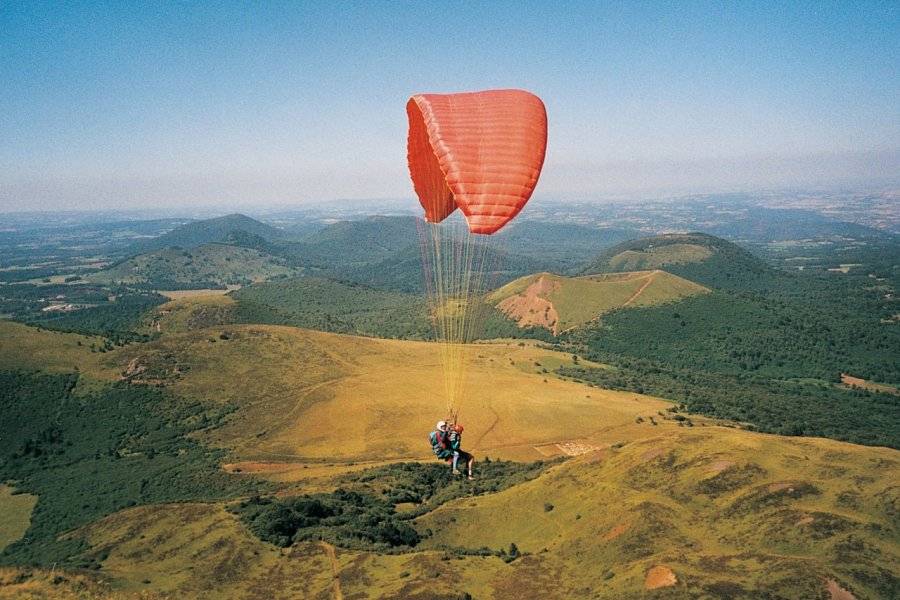A dormant volcano in the heart of the Parc naturel régional des Volcans d'Auvergne, the highest in the Chaîne des Puys.
Sitting at the heart of the Parc naturel régional des Volcans d'Auvergne, its silhouette is the emblem of the département, and can be seen from almost anywhere around Clermont-Ferrand. It gave its name to the department of Puy-de-Dôme in 1791. Located to the west of the Auvergne capital, the Giant of Domes rises to an altitude of 1,465 metres. Born 11,000 years ago, this dormant volcano is the highest in the Chaîne des Puys, which was added to UNESCO's World Heritage List in 2018, along with the Limagne fault. Positioned right in the middle of this geological complex, it overlooks the 80 volcanoes lined up in the volcanic chain, allowing visitors to observe the different geological elements that make up a rift, i.e. the break-up of a continent. To find out more, during school vacations and on certain weekends, take part in one of the free guided tours organized by the Département. In 2008, the volcano was awarded the "Grand Site de France" label for its preservation and enhancement. This implies the implementation of a management and sustainable development plan for this natural tourist site, the first in the Auvergne region. Although it is a popular tourist attraction, it is also a natural area that must be preserved and protected for future generations. The Puy de Dôme is home to a high level of biodiversity, including rare species of butterfly such as the Apollo, the Semi-Apollo and the Azuré du Serpolet, as well as flora such as the yellow gentian and the martagon lily. In fine weather, it's not uncommon to see flocks of Rava sheep grazing here, helping to maintain the natural beauty of the area. Two paths climb to the summit: the Muleteers' path to the south and the Goats' path to the north. The Panoramique des Dômes cogwheel train is another way to reach the summit. Up here, there are marked footpaths offering magnificent views. It's also a great place for paragliding and hang-gliding. There are also interpretation areas, including one devoted to the remains of the 2nd-century Mercure temple, one of the largest mountain sanctuaries in Roman Gaul. It's not all that surprising to find it there, given that at the foot of the volcano passed an important Roman road: the Via Agrippa. Last but not least, the Puy de Dôme is an emblematic place when it comes to science and sport. You're sure to come across names like Blaise Pascal and Eugène Renaux, who will tell you a different story about the volcano!
Did you know? This review was written by our professional authors.
Members' reviews on LE PUY DE DÔME
The ratings and reviews below reflect the subjective opinions of members and not the opinion of The Little Witty.






